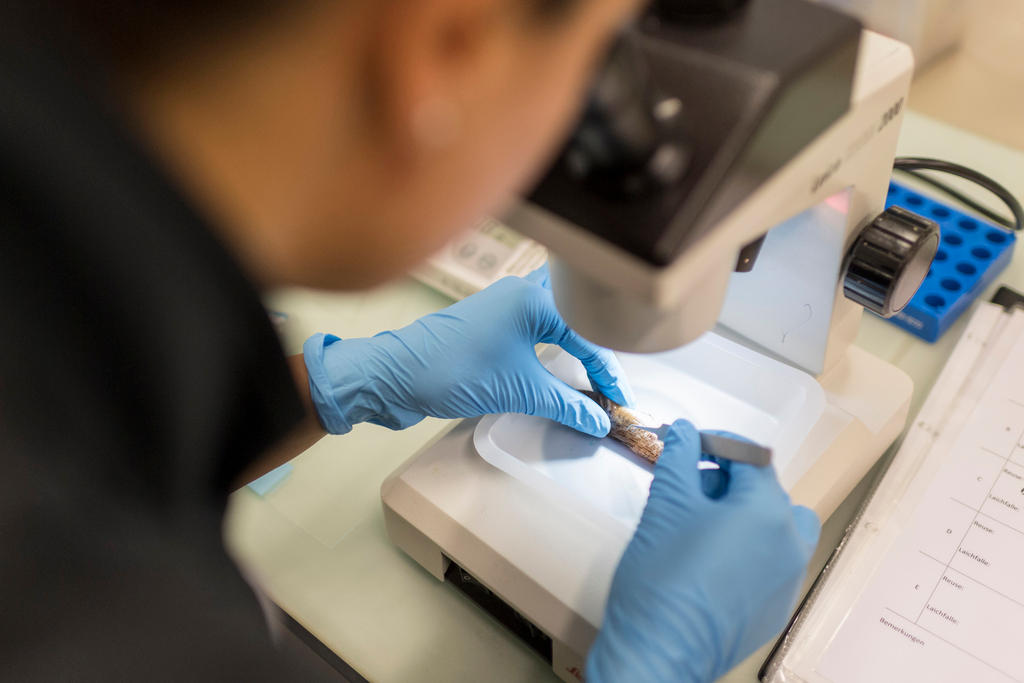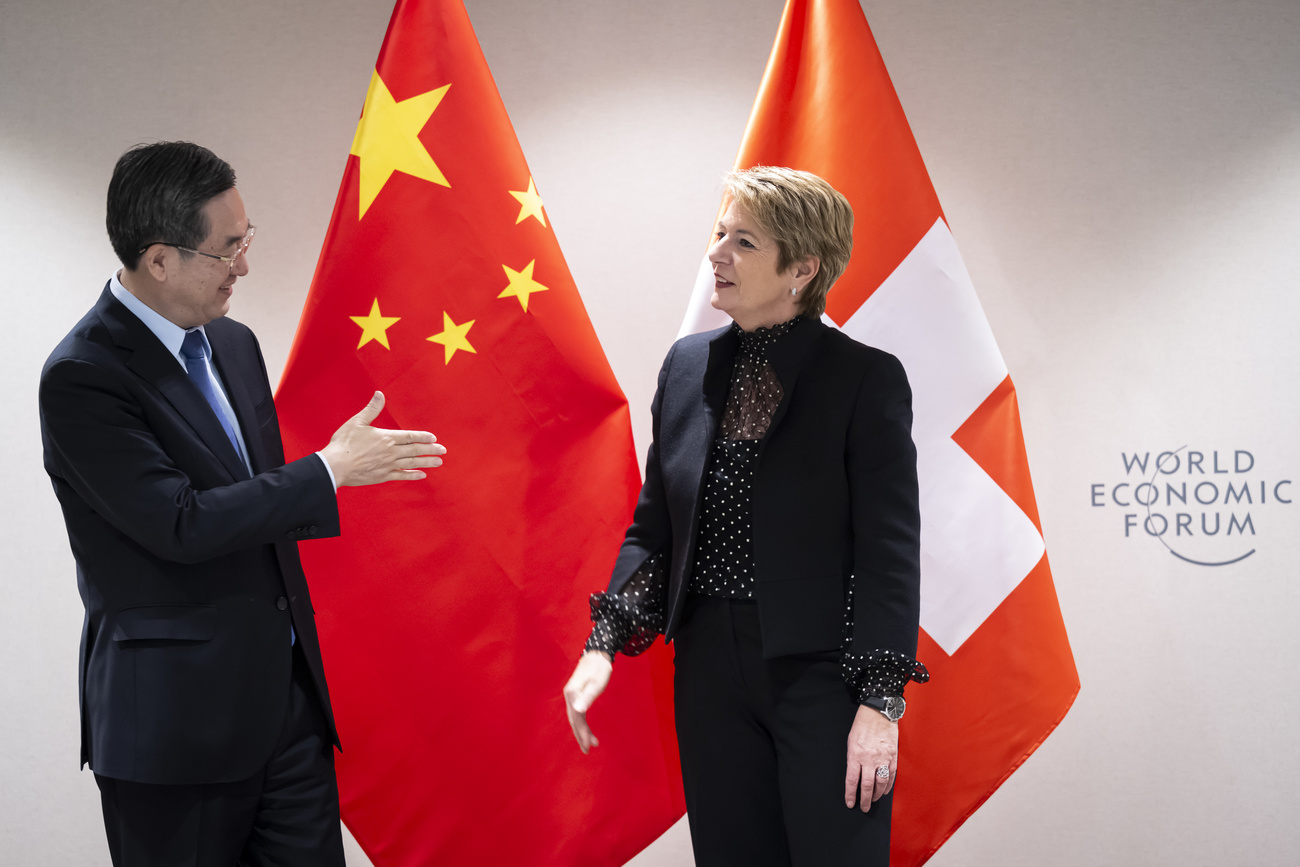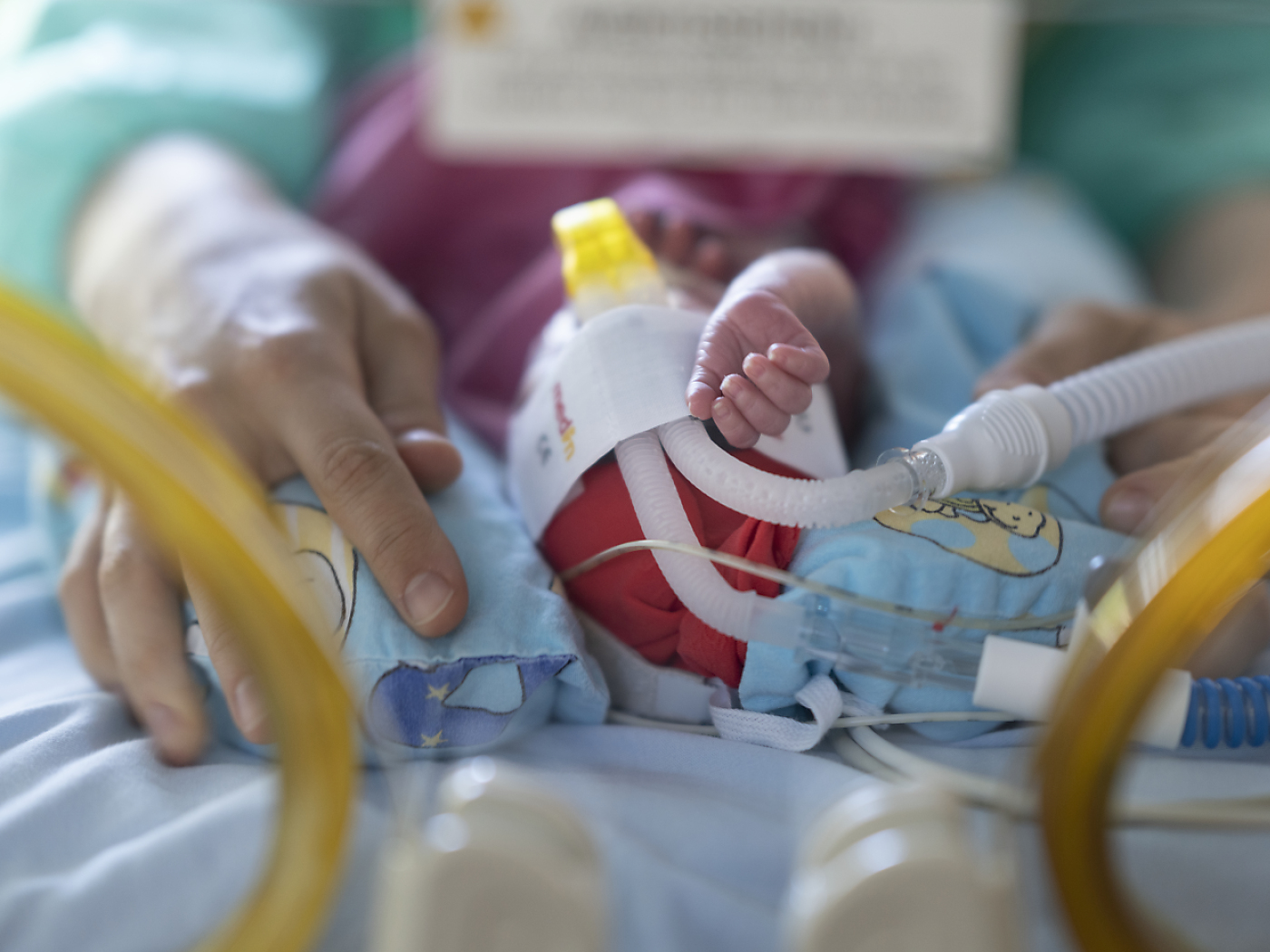Scientific research remains male-dominated

Women remain underrepresented in science in Switzerland despite making inroads, an international comparison has shown.
Figures published by the Federal Statistics Office on Friday – which is International Women’s DayExternal link – showed that Switzerland was below the European average in many areas. The situation is only slowly improving, a statement saidExternal link.
The statistics come from the She Figures 2018 reportExternal link published by the European Commission which highlights women in science across Europe.
There are more women studying than ever. In 2016, 51% of matriculated students were women and they made up 54% of those graduating with a Masters or Bachelors Degree.
Leaky pipeline
But afterwards they start dropping out of the academic career ladder (a phenomenon known as the “leaky pipeline”). The higher the position, the fewer women are represented, the statement said.
+ Read more about the leaky pipeline in Switzerland here
This becomes very clear after the PhD stage.
In some research sectors very few women received doctorates, the Statistical Office noted.
For example, in IT and communications technology (15% in 2016) and in engineering (27%). However, they were in the majority for agriculture and veterinary science (76%) and education (61%). But even in these areas, women did not make it to management positions (29% for agriculture and veterinary science).
The number of female researchers also varied according to whether they worked in higher education (39%), the federal government (36%) or industry (23%).
Top jobs to men
The top jobs in academia still mainly go to men. In 2017, women made up 27% of research council members and 30% of university rectors.
Slow progress has been made over the years, the statement said. Since 2009, the number of women getting a doctorate and starting their academic career has only risen by 2%.
“It is to be expected that it will take some time before gender parity is achieved between men and women in this sector,” the statement concluded.
Why?
In a report on Swiss public television SRFExternal link on Friday, Susan Gasser, a professor at the University of Basel, said there were several reasons why women were discouraged from making academic careers.
One was having the self confidence to apply for professorships, another was that applying for these jobs came at the same time as women normally started families, so there was a fear of not being able to combine the two. The third was in two-career relationships, it was normally the man’s career that comes first, Gasser explained.
What was needed was mentoring but also women professors acting as role models to show that it could be done, she told SRF.
On Friday, Switzerland’s top-ranked Federal Institute of Technology Zurich announced that it had appointed nine new professors, 40% of which were women.
</scriptThe ETH Board has appointed or promoted nine new professors, four of them women. For the first time, these candidates were proposed by the new ETH President, Joël Mesot. Congratulations! https://t.co/7dUxnAlbSLExternal link pic.twitter.com/mRUawOV7sTExternal link
— ETH Zurich (@ETH_en) March 8, 2019External link
Controversial scientist
The European Organization for Nuclear Research (CERN), based outside Geneva, said on Thursday it has cut ties with an Italian scientist who had suggested in a lecture that women were less able at physics than men.
Alessandro Strumia from the University of Pisa, who had been a guest professor at CERN, made the comments during a workshop in September 2018 on high-energy theory and gender.
CERN had initially suspended Strumia but now says it has decided to permanently end the partnership. Strumia told the BBCExternal link that he stood by his comments.

In compliance with the JTI standards
More: SWI swissinfo.ch certified by the Journalism Trust Initiative


















You can find an overview of ongoing debates with our journalists here . Please join us!
If you want to start a conversation about a topic raised in this article or want to report factual errors, email us at english@swissinfo.ch.